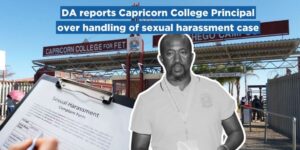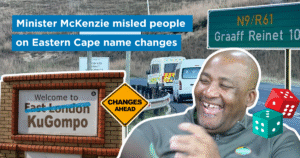English and Afrikaans soundbites by Lisa Schickerling MP.
- The Madlanga Commission must expose political interference and criminal infiltration without fear or favour.
- Implicated individuals must face swift accountability, from suspension to prosecution.
- Witnesses must be protected and urgent reforms implemented to restore trust in law enforcement.
The Judicial Commission of Inquiry into Criminality, Political Interference, and Corruption in the Criminal Justice System, chaired by retired Justice Mbuyiseli Madlanga, begins its work today.
This commission must pursue the truth without fear or favour. South Africans cannot afford another inquiry that tiptoes around political heavyweights or shields the well-connected.
Lieutenant-General Nhlanhla Mkhwanazi’s allegations of collusion between politicians, senior police officers, prosecutors, intelligence operatives and even elements of the judiciary have shaken public confidence. Only a fearless and thorough process can begin to restore trust.
The Madlanga Commission runs parallel to the Parliamentary Ad-Hoc Committee established to investigate Mkhwanazi’s allegations. Our members on the committee will monitor the commission’s hearings closely, so as to best represent the interests of South Africans by finding the truth.
Our expectations are clear:
- The commission must lay bare the scale of political interference and criminal infiltration across law enforcement and justice structures.
- Every individual implicated must be held to account, with swift referrals for suspension, disciplinary action, or criminal prosecution.
- Whistleblowers and witnesses must be protected so they can speak without fear.
- The final report must propose urgent, practical reforms to restore integrity to SAPS, the NPA and intelligence services and these proposals must be implemented by the executive without delay.
This inquiry cannot become another expensive talk shop. It must mark a turning point in crushing the syndicates that thrive on political protection and in rebuilding faith in the rule of law.




